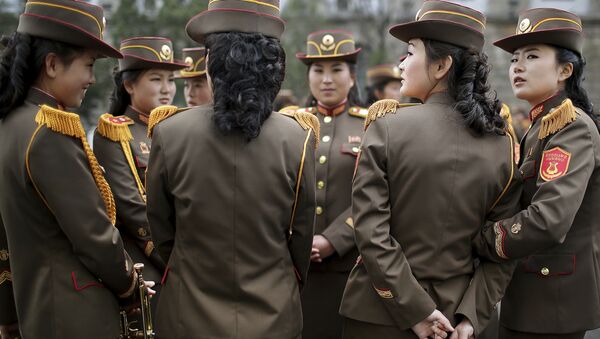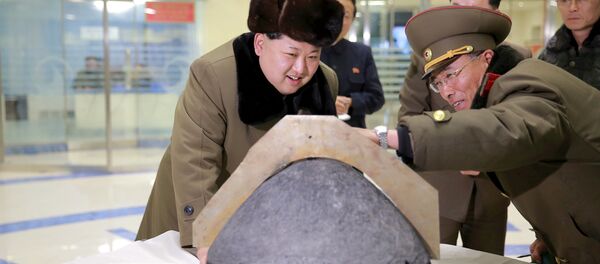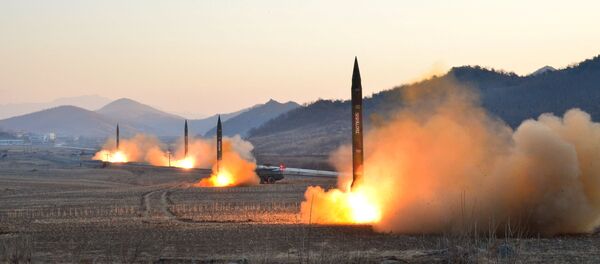Amid increasingly strident war rhetoric from the US, residents in regions near to North Korea offer that the recent moves are more of the same, noting that warnings of a nuclear attack are a threat commonly wielded by those who seek to destabilize regions.
After remarks by US Secretary of State Rex Tillerson that the US policy of strategic patience is over, and comments from US Ambassador to the United Nations Nikki Haley that negotiations with North Korea were no longer being considered as "all options" were now on the table, many observe that a new threat policy, months in the making, is now in full-scale use by the West.
But many in South Korea and Japan do not appear to share what they consider to be Washington's manufactured anxiety.
Asked by a reporter, one unnamed Seoul National University student simply commented, "It'll never happen."
"It's ridiculous," he added, according to the South China Morning Post.
In Japan, the dire warnings by from Washington were welcomed publicly, but privately the reaction was muted, according to the Japan Times, as no one at the executive level in Tokyo seriously believes that the United States will launch an invasion of North Korea.
When asked if Japan should begin evacuating its estimated 60,000 residents from South Korea, one senior Japanese government official said on Friday, "It's not like that."
"We know the situation is tense," the official added. "But you need to calmly watch and analyze the situation at a time like this."
In South Korea, residents are not worried about the West's increased war rhetoric for several reasons, according to Seoul National University professor of sociology Myoung-kyu.
"South Koreans have lived more than five decades with these kind of conflict situations," he pointed out, adding that residents "have experienced several situations of military confrontation between the South and North. So maybe that is one reason why South Koreans are not so worried."
Facing upcoming presidential elections in Seoul that are polling as favoring a candidate seen to be less amenable to US influence, many observe that Washington is doing its best to increase the fear of an attack from Pyongyang, and is offering itself as a guardian to reduce the danger.
The leading candidate in South Korea's upcoming elections, liberal Moon Jae-in, is known to favor a more hands-off approach with the US than the preceding administration.
"The timing is curious," according to Seoul native Joanne Lee, who added, "The US definitely doesn't want to see another liberal president in South Korea after Roh moo-hyun who would be less likely to follow their policies," as reported by Scmp.com.
But the prevailing thinking in the West continues to beat the drums of war.
US President Donald Trump has tweeted that he would be willing to "go it alone" if China does not step in to end ballistic missile and nuclear weapon tests by North Korea, and the US Navy's SEAL Team 6, notoriously responsible for the assassination of Osama bin Laden, has been deployed nearby in the event that the same move is ordered against DPRK leader Kim Jong-un.
Additionally, a US Navy carrier strike group has been redirected to the region, following sudden orders to cut short an ongoing mission in the waters around Australia.
To hear Phill Hynes, a political and risk analysis expert from Intelligent Security Solutions, tell it, "The prospect for a misstep has not been higher in 20 years."




